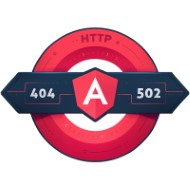Learn HTTP in Angular
Learn how to communicate with your backend API in Angular using the new Http module. Fetch and send data, customize HTTP headers, handle errors, and more. This course covers advanced topics like progress events and intercepting HTTP calls. Also, discover how to isolate and mock HTTP calls in unit tests. Improve your Angular skills today!
Client-server communication is at the heart of any modern web application. In this course we will take a look at how to communicate with your backend API in Angular, specifically with the new Http module(
) introduced and used in Angular
and later.
We will learn how to configure the
, how to fetch and send data, customize HTTP headers that are being sent and how to properly handle error responses.
We will also take a look at some more advanced use cases such as listening to progress events and intercepting HTTP calls. Finally we will also learn how to isolate and mock HTTP calls in automated unit tests.
Course Content
Fetch Data from an API using the HttpClient in Angular
Send Data via HTTP using Angular HttpParams
Handle HTTP Errors in Angular with HttpErrorResponse
Retry Failed Requests with RxJS and the HttpClient in Angular
Set Metadata in HTTP Headers with Angular HttpHeaders
Read Custom HTTP Headers Sent by the Server in Angular
Fetch non-JSON data by specifying HttpClient responseType in Angular
Type Check an Http Response using the Angular HttpClient and TypeScript
Provide Feedback to Progress Events with Angular’s HttpRequest Object
Intercept HTTP Requests with Angular’s HttpInterceptor
Mock HTTP Requests made with Angular’s HttpClient in Unit Tests







There are no reviews yet.